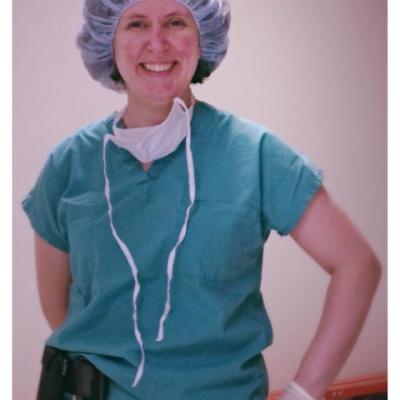
2008, University of Manchester, UK, Certificate in Epidemiology, Genetic Epidemiology and Biostatistics
1999-2023, University of Oxford, UK, St. Cross College, DPhil (PhD)
1997-1999, University of Oxford, UK, Merton College, MPhil
1993-1997, Université Libre de Bruxelles, Belgium, Licenciée (Grade: distinction) Archaeology/Physical Anthropology
1996, Université Libre de Bruxelles, Belgium, Certificate in Anthropology and Human Palaeontology
1994, University of Cambridge, Certificate of Proficiency
1992-1993, Université Libre de Bruxelles, Belgium, Candidate in Slavonic Studies
1992, University of St. Petersburg, Russia, Russian Studies Program
1992, Royal Academy of Music, Belgium, Certificate of Excellence in Theory of Music and Violin
Angelique Corthals is a biological/biomedical and forensic anthropologist as well as a biomedical researcher. She earned her DPhil (PhD) at the University of Oxford and is currently working as assistant professor at the City University of New York - John Jay College of Criminal Justice (CUNY) and was scientific director of the BioBank at SUNY Stony Brook University School of Medicine in the Department of Pathology until February 2016. She has held faculty and curatorial positions at the University of Manchester, the American Museum of Natural History (AMNH) and at the Stony Brook University Department of Anthropology. She studies the link between neurodegeneration, pathogens and metabolism as well as the histomorphology of trauma. As a diagnostic consultant for Doctor Without Borders, she is also a fierce advocate for access to medical care, therapeutics (Rx), prophylactics (vaccines) and medical technology for all.
Prior Teaching (2000-2008):
Undergraduate courses:
- Biological/physical and forensic anthropology (ANP 391)
- Biology 101 and 150 (intro bio for both science majors and non-science majors)
- Introduction to Pathology and Forensic Pathology (BIO 345/FOS 345)
- Epidemiology BIO 112
- Introduction to Biomedical Theory and Techniques (BIOL60231)
- Human Imaging, Anatomical and Forensic Methods (BIOL60262)
- Microscopy, Tissue Preparation and Image Analysis (BIOL60420)
- Human evolution and anatomy (including osteology, comparative anatomy, cadaver dissection-based anatomy) (BIO 312)
- Seminars in demography and biostatistics applied to questions of evolution, ecology and epidemiology (MATH/BIO 355)
- Graduate courses in:
- Epidemiology (BIO 712)
- Human anatomy and physiology (BIO 723)
- Osteology (including labs on human identification), pathology and trauma of the human skeleton (BIO 769)
Courses currently taught at CUNY (2009 – Present)
Undergraduate courses:
- Natural Sciences (NatSci 107 + lab)
- Intro to Forensic Science (FOS 108 + lab)
- Intro Bio (BIO 101; BIO 103)
- Biology of Gender and Sexuality (BIO 255 + Recitation)°
- Human Pathology (BIO 360 + Lab)*
- Forensic Pathology (BIO 364 + Lab)*
- Molecular Biology (BIO 412 + Lab)°
Graduate courses:
- Forensic Anthropology (FOS 761)*
- Advanced Genetics (FOS 704)°
Capstone Courses:
- FOS 402: Research Laboratory Experience
- Macaulay Honors Capstone
* = courses created by Dr. Corthals
° = existing courses Dr. Corthals helped re-developed
Course coordinator (course director) for Molecular Biology lectures and labs (BIO 412) and for Biology of Gender and Sexuality lectures and labs (BIO 255), as well as for Human and Forensic Pathology lectures and labs (BIO 360, BIO 364).
Click here for full record of Dr. Angelique Corthals publications
Angelique Corthals is a biological/biomedical and forensic anthropologist as well as a biomedical researcher. Her two research areas are: biomedical research (special focus on the etiology of autoimmune diseases); and biological/forensic anthropology. She also develops bioinformatics solutions for applications in all areas of research. She is also a fierce advocate for access to medical care and medical technology for all. Click here for a full list and details of Dr. Corthals Research Projects.